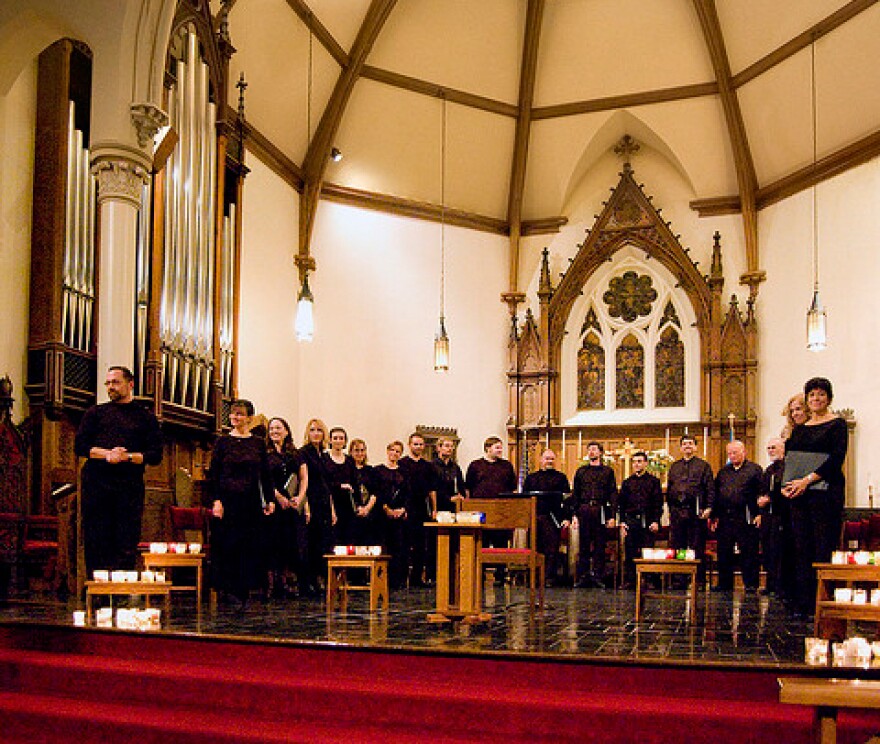Early Music Michigan will perform their concert Cantatas de Buxtehude at St. Augustine Cathedral Saturday night at 8 p.m. “Early music” refers to compositions from the medieval, renaissance and baroque periods.
EMM Artistic Director Eric Strand says in the 1980s, early music made a comeback. Now he says half of all classical music sold is early music. And modern composers are catching on.
“Modern day composers are writing for that sound. So they will take earlier examples and write a neo-renaissance piece, a neo-baroque piece, a neo-medieval almost chant—early chant—piece. And we perform some of that music too," says Strand. "So sometimes you’ll find very contemporary pieces.”
Strand says there's no such thing as progress in music.
“We don’t progress like we do in technology or dentistry say—which is a good thing in dentistry certainly," he says. "But in music, every single era has its own blossoming, its own flourishing.”
Saturday’s concert will feature a piece by Dietrich Buxtehude who was one of Johann Sebastian Bach’s major influences. The piece is called MembraJesuNostri. It’s the first known Protestant oratorio.
“Roughly translated to the various parts of Christ’s body to the cross," says Strand. "Sounds a bit morbid, but actually absolutely beautiful, sorrowful music full of pathos and spirit.”
Strand says the piece is from the perspective of someone kneeling at the foot of the cross. Their eyes gaze first at the feet, then at the hands, then the sides, the breast, the heart, and finally the face or head. Strand says each movement or cantata is pretty short, but all together the piece is epic.
Tom Fielding is an organist for both EMM and St. Augustine Cathedral where the group is holding Saturday’s concert. Fielding says his favorite cantata is about the hands.
“Diminished 7th chords, just a lot of things come together to create this sense of agony that would have been experienced, you know, obviously by having nails thrust through ones hands,” he says.
Fielding says the music might have a big sound, but don’t expect a big ensemble.
“Especially in the 19th century a lot of this music was re-scored for a bigger, romantic orchestra and was done with enormous choruses and so forth," Fielding says. "At this point in time, again we’re more interested in creating the environment of intimacy and clarity that comes from a very small, sleek ensemble.”
Sarah Miller Schulte, a vocalist and secretary for the group, agrees.
“With the smaller ensemble, you can really hear each voice and what each voice is trying to say,” she says.
Director Eric Strand says you’d be surprised how modern early music can sound.
“It’s not like we’re dusting off museum pieces as kind of oddities or curiosities," says Strand. "We try to—when we say ‘lively music’—we try to actually get this music into our bodies and into our voices so that it becomes a fresh statement, as if it’s just composed today."




